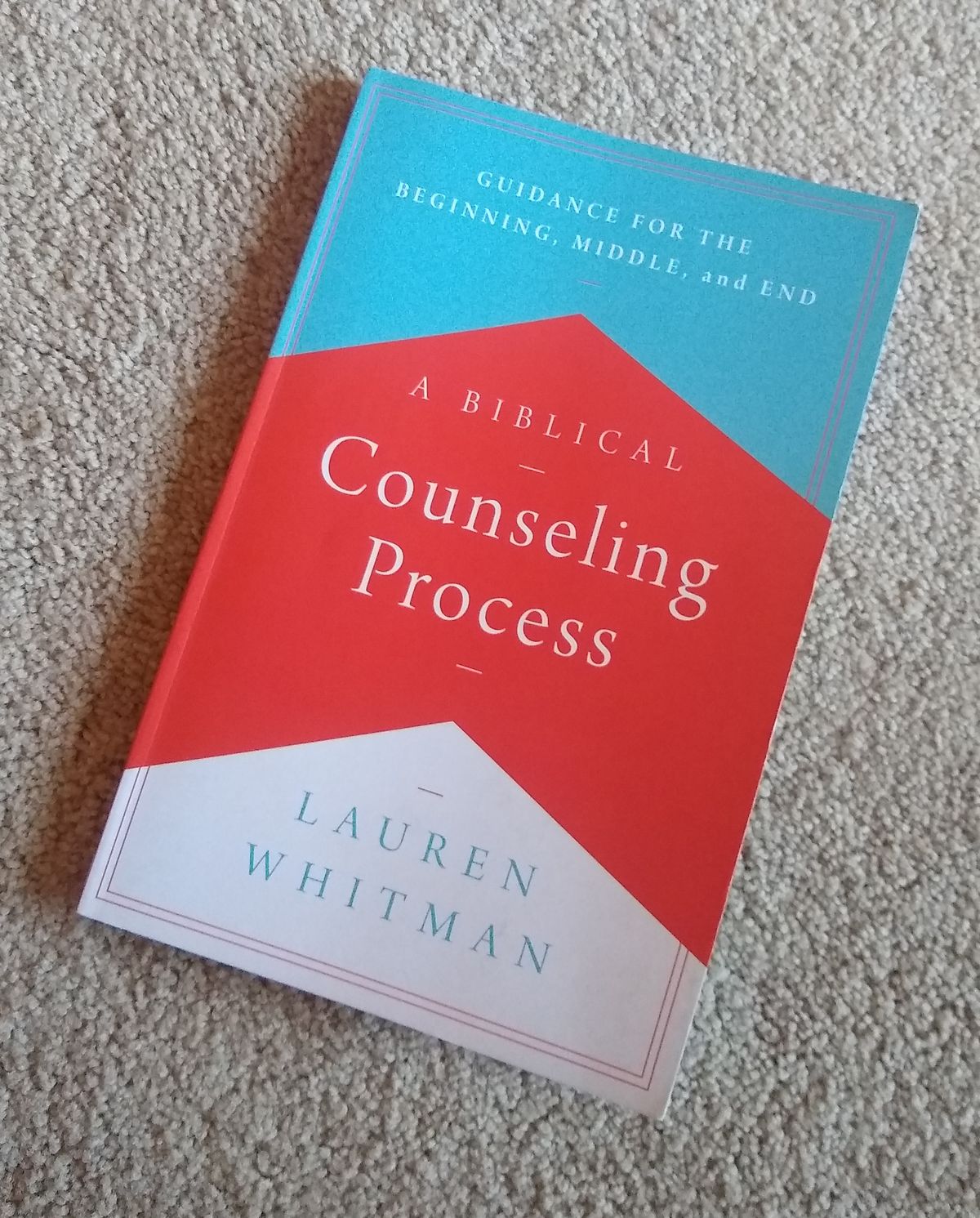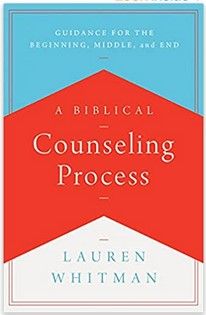Whitman, Lauren, A Biblical Counseling Process: Guidance for the Beginning, Middle, and End (New Growth Press: Greensboro, NC, 2021), 112 pages.
"It is safe to struggle in His presence," is worth the entire book
I have gravitated toward brief overviews of biblical counseling the past few months. These short books have provided a good review and helpful insights to refresh skills. Lauren Whitman has written such a book.
Whitman presents the counseling process in concise language that reaches to the core of biblical counseling. Her approach to the process moves the reader from the beginning, to the middle, and then the end. Simply put, she uses these markers for adding life to the process of counseling. From developing a relationship with the counselee to interpreting data biblically, and then ending with how to close cases, she provides workable methods driven by deep care for the counselee. She challenges the counselor to practice compassion in all stages of the process.
The second chapter which treats building counseling relationships, is both challenging and informative. Whitman's observations on empathy as a way to develop influence should not be overlooked. Counseling sessions provide the relationship foundation and information the counselor needs to effectively provide biblical insight for the counselee. While those things should be common knowledge to counselors, her perspective, organization and goals provide an adaptable framework for the counseling process.
For the busy counselor, this book provides much to consider for very little reading effort. Whitman's style and theological observations will help any counselor improve in the technical aspects of counseling. Her insights into relationship building and empathy challenge the reader to biblically frame their thinking about counseling relationships.
A need in this text is a list of a 'Scriptures Used' section at the end of the book. A list of consulted texts is a helpful quick reference for consulting later. Without this list a user is left to remember or dog ear a page for later reference. It is very helpful for the preacher who remembers her treatment of a particular text and wished to use her insights.
Whitman's application of Scripture to the structure of counseling challenged me to rethink some of the structures and goals I use in counseling. These are not radical changes, but fine tuning them will make me more responsive to the needs of the counselee. In her second session chapter she makes a brief reference to Psalm 40:1. The insight is profound for showing compassion to a counselee. Her insights were helpful for examining how I practice compassion using God as the example. Also the insight aids me in seeing the counselee as one who calls out for help. She made a simple observation with profound impact on my thinking. She writes, "It is safe to struggle in his presence. Make it safe for this person to struggle your presence" (37). I would like for Whitman to have delved deeper into this topic. From my perspective the insight can be further developed. Perhaps I am being selfish, but I could use more development of this topic. I hope she writes more on the subject in the future.
A counselor can use this book to fine tune their counseling process or basic skills. A new counselor's note book should include pieces or wisdom from many sources. This book can add depth to the counseling process by reminding us of the humanity we share with those we counsel. Also, her final chapter on doing a personal review after closing a case can be helpful in establishing a habit of self reflection and evaluation that will lead to counseling skill improvement. This is a text I will refer to often in the coming years.



